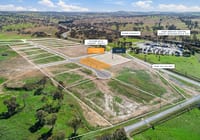
'Bloodbath territory': why the worst is yet to come for Australian commercial property
We might think COVID-19 has had a serious impact on the commercial real estate industry in Australia, but we haven’t seen anything yet, industry experts say.
The recession that is predicted to follow the pandemic could potentially be much more ruinous for many more landlords and tenants.
“It’s really going to be bloodbath territory,” said Steve Urwin of tenant advisory and workplace management firm Kernel Property.
“We’re going to see CBD office buildings converted into residential, we could see contraction in the big companies, there’ll be downsizing across the board and if the deals are good people will be moving away from secondary space to better space.
“These are uncharted waters and it’s hard to pick how severe it’s going to be. But it could be really bad – or absolutely awful!”
Brookfield’s head of office leasing Marcus Wraight agreed that a recession could perhaps be even more disruptive than coronavirus itself.
“It’s going to weaken demand, no doubt about it,” he said.
“We have to look at our organisations and try to create the best buildings we can, in the best locations and with the best environments so people are better insulated when it comes. And that’s inevitable.”
The pair were taking part in a webinar on Thursday, July 30, to discuss the commercial property market, its challenges and the changes currently underway, and consider how the future might look.
With the latest survey from national valuers m3property reporting that prime office space has had up to a 10 per cent fall in value as a result of COVID-19, regional retail enduring a hit of up to 20 per cent and hotels outside tourism hubs or cities seeing a drop of up to 25 per cent, the mood was pessimistic.
Retailers have been massively impacted with most, particularly in Melbourne, suffering hugely, according to Mr Urwin. Most are, as a result, paying no rent, with landlords knowing that if they put pressure on them, many will not be able to survive.
Nearly everyone is, however, adhering to the absolute letter of the commercial code put in place by the Federal Government to try to support the sector.
At the same time, commercial leasing activity has dropped significantly. “People are still leasing but it’s difficult as organisations can’t work out headcount numbers now and into the future,” said Mr Wraight.
For while some people have been enjoying working from home and may be reluctant to return to the office, it hasn’t been a solution that’s suited everyone.
Geographically varied
In Perth many people are back in their company’s buildings, in Sydney there’s been a steady drift to offices, and in Melbourne there’s been the enforced return home as a result of the second lockdown. Some international companies, such as Google, haven’t reopened their offices either as a result of global policies on workplaces.
“Every organisation and government organisation is different going forward,” said Mr Urwin. He said some companies were already reducing their demands for space by up to three-quarters of their previous allocation, while others were examining more flexible options – such as hubs with 12 desks in a 40-square-metre suite.
The uncertainty of the times – with some originally predicting we might be back to ‘normal’ in three months, others citing six months, and now many talking in terms of a couple of years – makes everything more difficult, he believes.
“One company has 20 per cent of their space occupied to date,” he said. “Another has only four to five people out of a staff of 120. So they’ll try to save $4 million over the next 18 months and have that money as a war chest and have maybe a hub in the CBD instead.
“Flexibility is now the name of the game, and we’re going to see that mindset coming through a lot more to take us through the next stage, whether that’s six months, two years or five years. There’s gong to be this lingering fear factor about the future for a long time to come.”
The work-at-home experiment simply proved much more successful than many thought it would, said Mr Wraight. But the excitement over the novelty of home-working might be short-lived.
“I think the experiment happened in the past with Yahoo and Microsoft and, over the years, they realised they lost that element of collaboration between staff, so I think that can be very difficult for some organisations,” he said. “They were able to reduce their space, but then lost the ability to keep their workers engaged with the organisation.”
Some people, in addition, thrive on the energy, connectivity and sociability of a formal workplace and young staff often benefit from being mentored by others in the workplace and being able to shadow more senior staff.
They also may not have the personal networks, infrastructure and even a suitable environment to work effectively from home. Even reading a situation accurately on a Zoom call may be too hard for the inexperienced.
The NZ experience
But both say this time may also present opportunities to make the sector more resilient for the future.
While the Federal Government put forward the code of conduct to make sure landlords and tenants shared the costs of the COVID-19 crisis, there could be room for that kind of situation to be more formalised in other circumstances, said Mr Urwin.
“There’s this fear that maybe another virus could come, and how do we deal with that in a balanced, structured way going forward?” he said.
He suggested the New Zealand legal changes put into leasing agreements after the 2011 Christchurch earthquake might prove a valuable contribution to the discussion.
Changes to the Auckland District Law Society (ADLS) Deed of Lease, commonly used throughout New Zealand for leases of commercial property, include a provision where premises were undamaged but couldn’t be accessed, as with this virus.
In this situation, instead of the tenant being obliged to continue paying rent and outgoings, they are entitled to a fair reduction in the rent and outgoings until the premises can be used again. If the situation continues for nine months – the default period in the lease – either party is entitled to terminate the lease.










